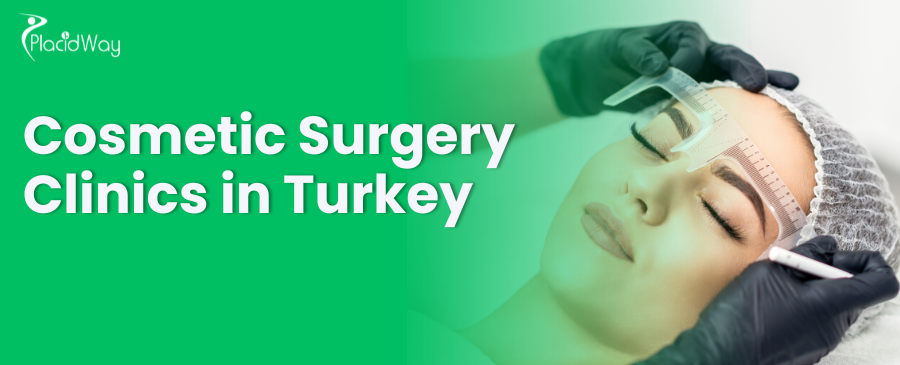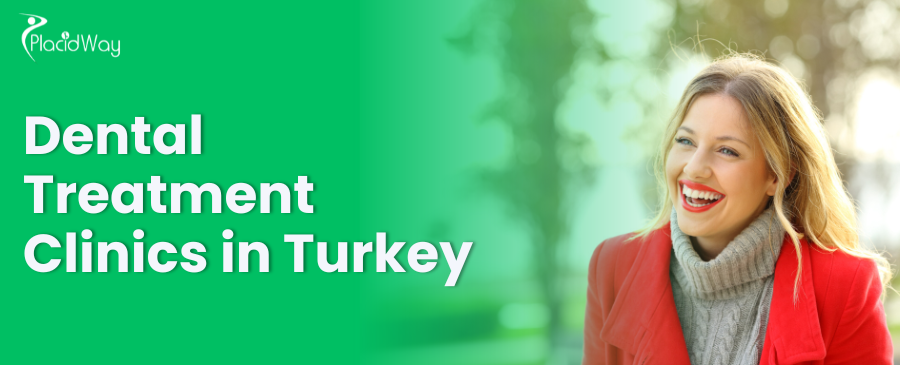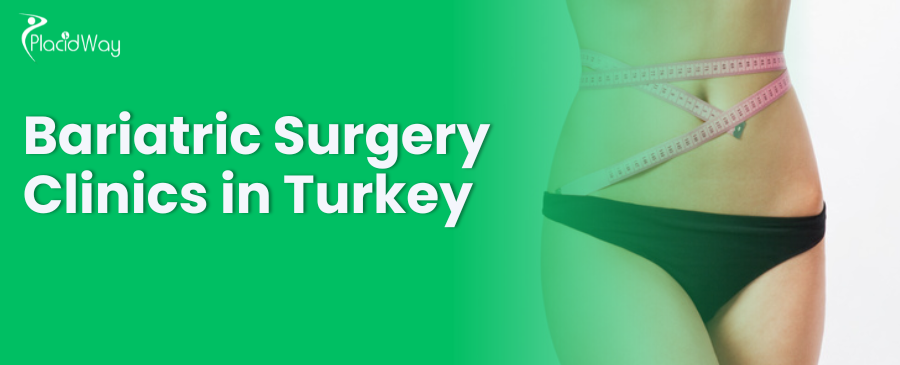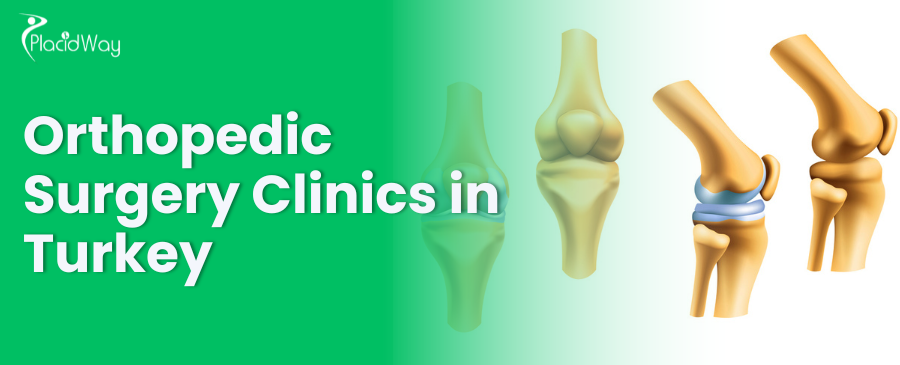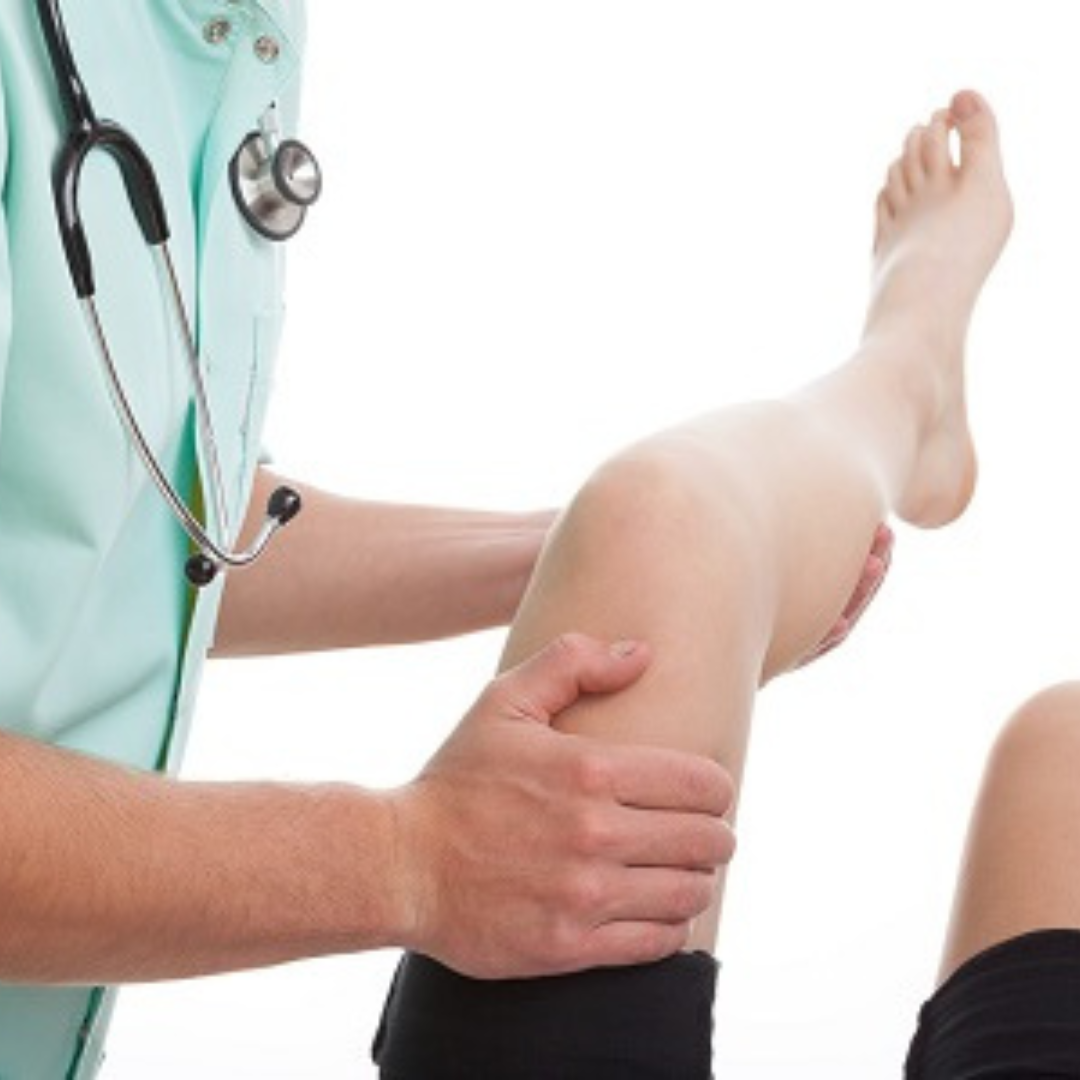Turkey Medical Tourism

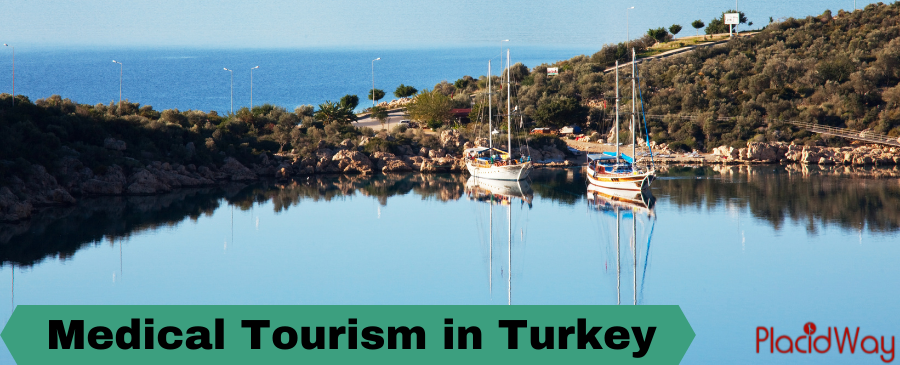
Guide To Medical Tourism in Turkey
Turkey, straddling the crossroads of Europe and Asia, has emerged as a global powerhouse in medical tourism, offering a unique blend of advanced healthcare services, rich history, and cultural diversity. This intriguing nation is not just a travel destination but also a top choice for those seeking high-quality, affordable medical care.
A Harmonious Blend of Traditional and Modern Healthcare
Turkey's healthcare system showcases a remarkable fusion of state-of-the-art medical technology and age-old traditions in wellness and healing. This combination is not only appealing but also provides a holistic approach to healthcare, which is increasingly sought after by international patients.
World-Class Medical Infrastructure
Turkey's medical infrastructure has seen substantial investment and growth in recent years. With JCI-accredited hospitals and clinics, the country boasts of facilities that adhere to international standards in healthcare, ensuring patients receive top-quality treatment and care.
Diverse Medical Offerings
The country specializes in a wide range of medical services, including but not limited to cosmetic surgery, hair transplantation, dental procedures, and eye surgeries. Additionally, Turkey is renowned for its advanced cancer treatment centers and cardiology departments.
Facts and Figures:
-
Growing Popularity: Turkey hosts approximately 700,000 to 1 million medical tourists annually, with numbers growing steadily.
-
Economic Contribution: The medical tourism sector significantly contributes to Turkey's economy, with revenues estimated in the billions of dollars.
-
Global Recognition: Turkey is recognized as one of the leading countries for hair transplant and cosmetic surgery, attracting patients from Europe, the Middle East, and beyond.
-
Patient Experience: Many patients report high satisfaction rates, citing the combination of quality medical care, advanced technology, and exceptional hospitality.
A Destination for Health and Heritage
Beyond its medical excellence, Turkey offers a unique experience that combines healing with exploration. The country’s rich cultural heritage, captivating landscapes, and historical sites provide an enriching backdrop for patients and their companions. The fusion of experiencing world-class medical care while immersed in the historical and cultural beauty of Turkey makes it a highly attractive destination for medical tourists.
Types of Treatment & Specialties Offered in Medical Tourism in Turkey
Turkey's medical tourism landscape is rich and diverse, offering a wide array of treatments and specialties that cater to various health needs. We will explore the most sought-after types of treatments and specialties that have positioned Turkey as a prominent destination for medical tourists.
1. Cosmetic and Plastic Surgery
- Procedures Offered: This includes a range of surgeries such as rhinoplasty, breast augmentation, liposuction, facelifts, and tummy tucks.
- Popularity: Known for its skilled surgeons and state-of-the-art facilities, Turkey has become a hotspot for those seeking cosmetic enhancements at competitive prices.
2. Hair Transplantation
- Innovative Techniques: Turkey is a global leader in hair transplantation, offering advanced techniques like Follicular Unit Extraction (FUE) and Direct Hair Implantation (DHI).
- Affordability and Quality: The combination of high-quality services and lower costs compared to many Western countries makes it a preferred choice for this procedure.
3. Dental Care
- Range of Services: From cosmetic dentistry, including veneers and whitening, to more complex procedures like dental implants and orthodontics.
- Expertise and Technology: Turkish dental clinics are equipped with cutting-edge technology and staffed by experienced dental professionals.
4. Eye Surgery
- Procedures: Includes LASIK, cataract surgery, and corneal transplants.
- Advanced Care: Eye care in Turkey is known for utilizing the latest technologies and techniques, ensuring high success rates.
5. Cardiology and Heart Surgery
- Specialized Treatments: Turkey's cardiology centers offer treatments like coronary artery bypass grafting, heart valve replacement, and angioplasty.
- Renowned Specialists: Many Turkish cardiologists and heart surgeons are globally recognized for their expertise and innovative practices.
6. Oncology
- Comprehensive Cancer Care: Facilities in Turkey provide advanced cancer treatments, including chemotherapy, radiation therapy, and newer modalities like immunotherapy.
- Holistic Approach: Emphasis on patient-centered care, combining advanced treatment with supportive therapies.
7. Orthopedics
- Procedures: Ranges from joint replacement to sports medicine and spinal surgery.
- Rehabilitation Services: Post-operative care and rehabilitation services in Turkey are noted for their quality, aiding quicker recovery.
8. Fertility Treatments
- Advanced Reproductive Technologies: Including IVF, ICSI, and egg freezing.
- High Success Rates: Turkey's fertility clinics boast success rates comparable to the best in the world, making them a popular choice for couples seeking help.
9. Bariatric Surgery and Weight Loss Procedures
- Offerings: Gastric bypass, sleeve gastrectomy, and gastric balloon procedures are commonly performed.
- Expertise: Turkish surgeons specializing in bariatric surgery are known for their experience and high success rates.
Facts and Figures:
- International Accreditations: Numerous Turkish hospitals are accredited by international organizations like the Joint Commission International (JCI).
- Global Rankings: Turkey often ranks among the top destinations worldwide for medical tourism in several of these specialties.
Patient-Centric Approach
What sets Turkey apart in medical tourism is not only the range and quality of treatments offered but also the emphasis on a patient-centric approach. This includes personalized treatment plans, multilingual staff, and comprehensive care that extends from initial consultation to post-treatment follow-up.
Medical Tourism Quality & Accreditation in Turkey
Ensuring high standards of quality and safety is paramount in medical tourism. Turkey's healthcare system has made significant strides in this area, earning international recognition and accreditation. We will delve into the aspects of quality control, accreditation, and the efforts made by Turkey to uphold the highest standards in medical tourism.
1. International Accreditation
- JCI Accreditation: Many Turkish hospitals and medical centers have been accredited by the Joint Commission International (JCI), which is considered the gold standard in global health care. JCI accreditation signifies adherence to the highest standards of patient safety and care quality.
- Other Accreditations: In addition to JCI, several facilities in Turkey hold accreditations from ISO (International Organization for Standardization) and other relevant international healthcare organizations.
2. Government Regulations and Standards
- Strict Regulations: The Turkish Ministry of Health has implemented stringent regulations and standards for hospitals and clinics catering to international patients. These regulations ensure that medical facilities maintain high levels of hygiene, patient care, and medical practice.
- Regular Inspections: Hospitals and clinics undergo regular inspections to ensure compliance with these standards and to maintain their licenses and accreditations.
3. Medical Staff Credentials
- Qualified Professionals: Turkish doctors and surgeons are highly qualified, with many having trained or worked in Europe or North America. Their credentials are rigorously checked as part of the accreditation process.
- Continuous Education: Medical professionals in Turkey are required to stay updated with the latest medical advancements and technologies, ensuring they provide up-to-date care.
4. Quality of Care
- Patient Safety Protocols: Turkish medical facilities follow strict patient safety protocols, which include infection control measures, safe surgical practices, and comprehensive post-operative care.
- Technology and Infrastructure: Hospitals invest in state-of-the-art medical technology and infrastructure, which is integral to delivering high-quality medical services.
5. Patient-Centered Services
- International Patient Departments: Many hospitals have dedicated international patient departments that provide services such as translation, assistance with travel and accommodation arrangements, and post-treatment care coordination.
- Patient Satisfaction and Feedback: Hospitals routinely collect and analyze patient feedback to continually improve the patient experience.
6. Transparency and Ethics
- Clear Communication: There is an emphasis on clear communication regarding treatment options, risks, and pricing, ensuring patients make informed decisions.
- Ethical Standards: Adherence to ethical standards in medical practice, including patient confidentiality and consent, is a priority.
Facts and Figures:
- Number of Accredited Hospitals: Turkey has one of the highest numbers of JCI-accredited hospitals in the region.
- International Patients: Annually, a significant percentage of the patients in these accredited hospitals are international, reflecting global trust in Turkey’s medical tourism sector.
Continual Improvement
The Turkish healthcare sector's commitment to maintaining high standards is evident in its continual efforts to improve and adapt. The combination of world-class facilities, skilled medical professionals, and strict adherence to international safety and quality standards makes Turkey a reliable and attractive destination for medical tourists.
Top Medical Treatment Clinics in Turkey
Discovering top medical treatment clinics in Turkey is simplified by focusing on facilities with international accreditations like JCI and positive patient testimonials, ensuring a blend of quality care and experienced medical professionals. Utilize online platforms and directories specializing in medical tourism to compare and select clinics that best meet your specific healthcare needs and standards.
Cosmetic Surgery Clinics in Turkey
Dental Treatment Clinics in Turkey
Bariatric Surgery Clinics in Turkey
Orthopedic Surgery Clinics in Turkey
Fertility Treatments Clinics in Turkey
Affordable Medical Treatment Packages in Turkey
Turkey offers affordable medical treatment packages that combine cost-effective healthcare with high-quality services, making it a favorable destination for a wide range of medical procedures. These packages often include all aspects of the treatment process, along with accommodation and local transportation, providing a comprehensive and budget-friendly solution for medical tourists.
Cost Comparisons of Medical Treatments in Turkey
Turkey offers significant savings on medical treatments compared to many Western countries. Below are key examples:
- Cosmetic Surgery: Prices are generally 50-70% lower. A procedure costing $8,000 in the U.S. might be around $2,500-$4,000 in Turkey.
- Hair Transplantation: Renowned for affordable hair transplants, the cost in Turkey ranges from $1,500 to $4,000, versus upwards of $15,000 in the U.S.
- Dental Care: Expect savings of 50-70%. A dental implant costing $3,000 in the U.S. or Europe might be about $800-$1,000 in Turkey.
- Cardiac Surgery: Complex procedures like bypass surgery can be 50-65% less expensive than in the U.S.
- Orthopedic Procedures: Knee or hip replacements are around 60-70% cheaper than in the U.S.
- Eye Surgery: Procedures like LASIK cost about 50-60% less than in Western countries.
These cost advantages, coupled with high-quality care, make Turkey an attractive destination for medical tourists seeking affordability and excellence. Explore more medical treatment cost in Turkey by visiting the link.
Factors Contributing to Lower Costs
- Economic Factors: The lower cost of living and labor costs in Turkey contribute to more affordable healthcare services.
- Government Subsidies: The Turkish government provides subsidies to medical facilities, which helps in reducing the overall costs for patients.
- Competitive Market: The growing medical tourism market in Turkey creates a competitive environment, leading to more cost-effective pricing for patients.
Average Savings: On average, medical tourists can expect to save between 50% to 75% on healthcare costs in Turkey compared to the U.S. and Western Europe.
Traveling and Visa Information about Medical Tourism in Turkey
For individuals considering Turkey for medical treatment, understanding the travel and visa requirements is crucial for a smooth and stress-free journey. We provides essential information regarding traveling to Turkey for medical purposes, including visa processes, entry requirements, and other travel tips.
1. Visa Requirements
- E-Visa Facility: Many nationalities can apply for a Turkish visa online through the e-Visa system, which is a straightforward and convenient process.
- Type of Visa: Typically, a tourist visa is sufficient for medical tourists, as these are short-term and cover the duration needed for most medical procedures.
- Documentation for Visa: It’s advisable to have documentation regarding your medical treatment when applying for a visa, such as a letter from the hospital or medical center in Turkey.
2. Medical Visa
- Special Medical Visa: In some cases, especially for longer treatments, a medical visa may be appropriate. This requires specific documentation from the medical facility in Turkey regarding the nature and duration of the treatment.
- Advantages of Medical Visa: Obtaining a medical visa can sometimes facilitate a longer stay and is tailored specifically for those traveling for medical reasons.
3. Visa Duration and Extensions
- Duration: Tourist visas usually allow a stay of up to 90 days in a 180 day period.
- Visa Extensions: In case of extended treatment, visa extensions can be applied for within Turkey, but this requires proper documentation and is subject to approval by Turkish immigration authorities.
4. Entry Requirements
- Passport Validity: Ensure that your passport is valid for at least 6 months from the date of entry into Turkey.
- Health and Travel Insurance: While not always mandatory, it is highly recommended to have health and travel insurance that covers medical treatments abroad.
5. Travel Arrangements
- Accessibility: Turkey is well-connected internationally, with Istanbul Airport serving as a major hub.
- Transport within Turkey: Domestic flights, trains, and buses are available for travel within the country if treatment is outside Istanbul.
6. Accommodation and Local Support
- Stay Near Medical Facilities: Choose accommodation close to the medical facility for convenience, especially post-treatment.
- Language and Support: English is widely spoken in major cities and tourist areas. Many hospitals offer interpreter services, and patient coordinators can assist with local arrangements.
7. Cultural Considerations
- Respect Local Customs: Turkey is a culturally rich country with a blend of modern and traditional values. It’s important to respect local customs and traditions.
- Currency and Payments: The local currency is the Turkish Lira (TRY). Ensure to have some local currency, although most places accept credit cards.
Tips for a Smooth Journey
- Pre-travel Checklist: Ensure all documents are in order, including visas, travel and health insurance, and medical documents.
- Stay Informed: Keep updated with any travel advisories or changes in regulations pertaining to Turkey.
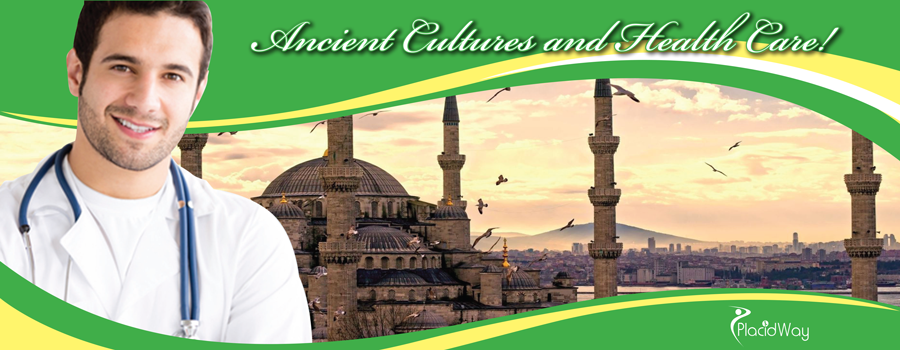
Combining Healthcare & Leisure: Tailored Itineraries in Turkey
Medical tourism in Turkey offers a unique opportunity to combine top-tier healthcare with a memorable leisure experience. We outlines how medical tourists can create tailored itineraries that blend their healthcare needs with the rich cultural, historical, and natural beauty of Turkey.
1. Pre-Treatment Exploration
- Istanbul: Before your medical procedure, explore Istanbul’s enchanting blend of history and modernity. Visit iconic landmarks like the Hagia Sophia, Blue Mosque, and the bustling Grand Bazaar.
- Relaxation: Consider visiting Turkish baths (Hamams) for relaxation and rejuvenation – a perfect pre-treatment activity.
2. Post-Treatment Recovery
- Tranquil Destinations: Choose serene locations for recovery after your procedure. Areas such as the Aegean coast, Antalya, or quieter parts of Istanbul can offer a peaceful environment conducive to healing.
- Resort Stays: Consider staying in a resort that offers post-treatment care facilities. Some resorts collaborate with medical facilities to ensure a smooth recovery.
3. Tailored Health and Wellness Retreats
- Thermal Springs: Turkey is famous for its thermal springs, like those in Pamukkale or Yalova, which are ideal for relaxation and have therapeutic benefits.
- Wellness Resorts: Opt for a stay in wellness resorts that offer spa treatments, healthy cuisine, and activities like yoga and meditation, complementing your medical treatment.
4. Cultural Immersion
- Local Cuisine: Experience Turkey’s rich culinary scene, which is both delicious and often healthy, aiding in recovery.
- Cultural Tours: Engage in light cultural tours that allow you to experience Turkey’s history and traditions without exerting yourself.
5. Leisure Activities
- Bosphorus Cruise: A gentle cruise on the Bosphorus is a relaxing way to see Istanbul’s sights without the need for extensive walking.
- Handicraft Workshops: Participate in low-energy activities like Turkish carpet workshops or pottery classes, which are therapeutic and culturally enriching.
6. Nature and Scenic Beauty
- Coastal Regions: For a serene environment, the Turkish Riviera, with its stunning beaches and clear waters, offers a perfect setting.
- Cappadocia: If mobility is not an issue, a visit to Cappadocia with its fairy chimneys and hot air balloon rides can be a magical experience.
7. Planning Your Itinerary
- Consult Your Medical Provider: Always consult with your healthcare provider to ensure that your travel and leisure activities are suitable for your medical condition.
- Customized Tour Packages: Consider tour operators specializing in medical tourism that can tailor your itinerary to suit both your health and leisure interests.
8. Practical Considerations
- Transportation: Choose comfortable and convenient modes of transportation, keeping in mind your physical comfort post-treatment.
- Accommodation: Select accommodations that cater to the needs of medical tourists, with amenities like easy access to healthcare facilities and peaceful environments.
Safety, Practical Tips & Emergency Contacts for Medical Tourism in Turkey
Ensuring safety and being prepared with practical information is essential for a stress-free medical tourism experience in Turkey. We provides crucial safety tips, practical advice, and emergency contact information for medical tourists.
Safety Tips
- Research and Choose Reputable Providers: Select accredited hospitals and experienced medical professionals. Research thoroughly and read reviews from previous patients.
- Travel Insurance: Make sure your travel insurance covers medical treatment abroad and any potential travel disruptions.
- Awareness of Local Laws and Customs: Familiarize yourself with local laws and customs to avoid any inadvertent legal issues.
- Secure Valuables: Use hotel safes or secure storage for valuable items and travel documents.
- Health Precautions: Follow any specific health advice or precautions, such as vaccinations, recommended for travelers to Turkey.
- Avoid High-Risk Areas: Stay informed about the safety of different regions within Turkey and avoid areas with travel advisories.
Practical Tips
- Currency and Payments: The Turkish Lira (TRY) is the local currency. Inform your bank of your travel to avoid any issues with card transactions.
- Communication: Consider buying a local SIM card for easy communication. Many Turkish people speak English, especially in urban and tourist areas.
- Transportation: Use licensed taxis or reputable transportation services, especially when traveling to and from medical appointments.
- Cultural Sensitivity: Dress modestly, especially when visiting religious sites, and be respectful of local customs.
- Stay Hydrated: Drink bottled water to avoid any potential health issues.
- Local Cuisine: Enjoy the local cuisine but be cautious with street food, especially before medical procedures.
Emergency Contacts
- Emergency Services: Dial 112 for an ambulance, fire service, or police in Turkey.
- Your Country’s Embassy or Consulate: Have the contact details of your embassy or consulate in case of legal troubles or emergencies.
- Hospital Contact: Keep the contact details of the hospital or clinic where you are receiving treatment.
- Local Support Contact: If you have a local contact, like a tour operator specializing in medical tourism, keep their details handy.
- Insurance Contact: Have your insurance provider’s emergency contact number easily accessible.
- Transportation Services: Keep the contact details of reliable taxi services or transportation apps.
Additional Considerations
- Medical Records: Keep a copy of your medical records and any prescriptions with you.
- Local Apps: Download local apps for navigation, translation, and emergency services.
- Cultural Awareness: Understand and respect the cultural norms, which can be different from Western practices, to enhance your experience.
- Post-Treatment Care: Follow all post-treatment instructions carefully and know where to seek help if complications arise.
Embark on your journey to wellness with PlacidWay's Medical Tourism in Turkey, where exceptional healthcare meets affordability and cultural richness. Connect with us today to explore personalized treatment options and start planning your medical travel to Turkey, where quality care and transformative experiences await you.
Contact us to know more about Turkey and its First Class Medical Tourism by clicking the button below:

